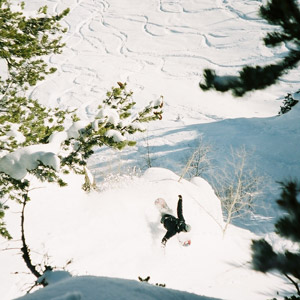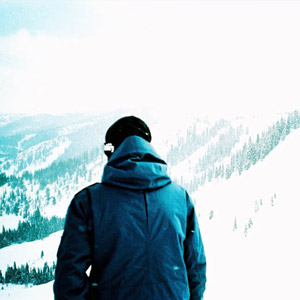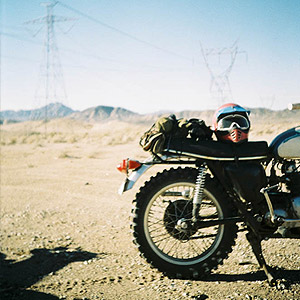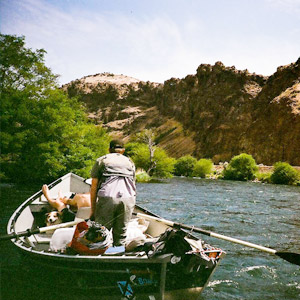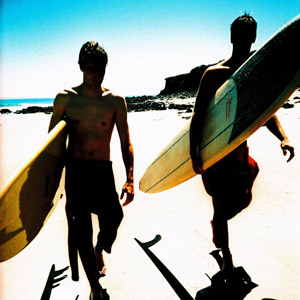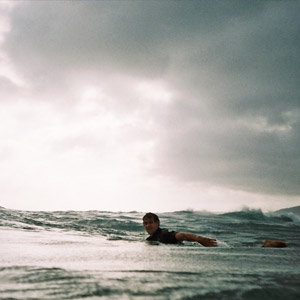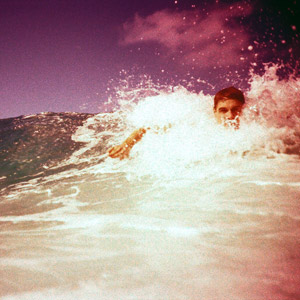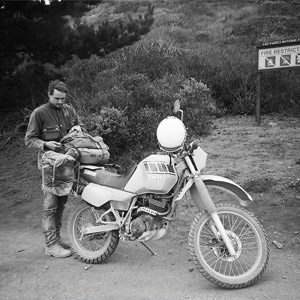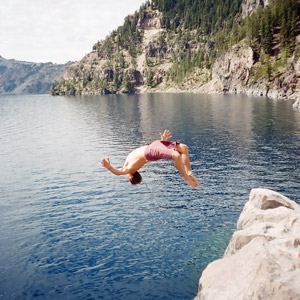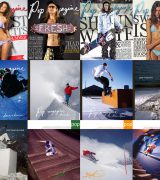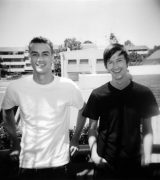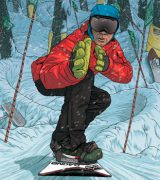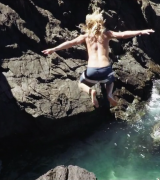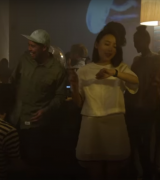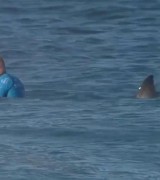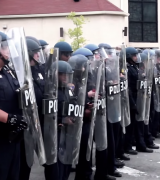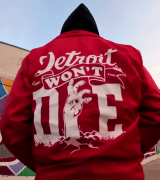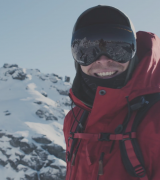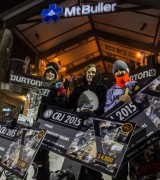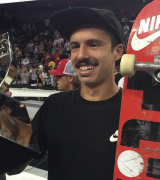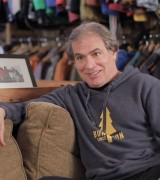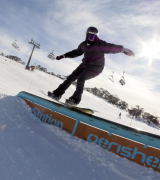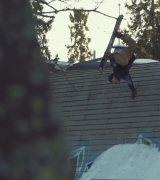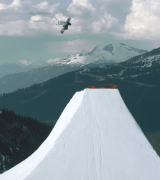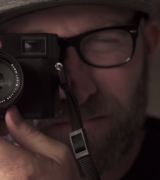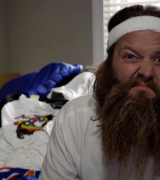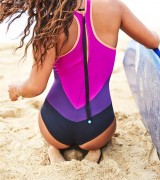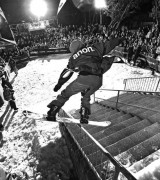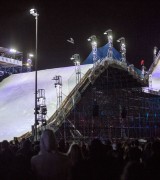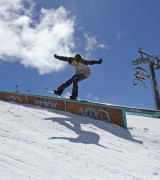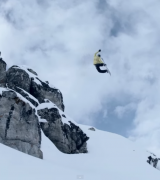A much edited down version of this interview originally appeared in issue 18 of Pop Magazine. Steve Berra gave up hours of his time to sit with our writer, Steele Saunders, and talk about The Berrics, his history and his opinions on the direction of skateboarding. It’s an amazing interview – the full text is being released in four parts, this is part one. All up it is 17,000 words and I’ve listened to it and read it over a dozen times so far. We’re releasing the audio from the interview at the same time as the text – you can download it from Steele Saunders over here. Hope you enjoy it – next part will be up next Thursday (June 23rd).
Photos from Mike Blabac.
###
There is no doubting Steve Berra’s drive and passion for creating a better future for skaters. And while you can disagree with his methods and opinions; you would be hard pushed to find someone doing more to progress the industry than he is. From his online store, to the controversial Unified program, to some innovative new (but as yet unannounced) initiatives; Steve Berra is leading the charge for the future of skateboarding, are you with him?
I have to start it with it’s pretty impressive you’re getting casual text messages from Leonardo DiCaprio during my interview.
[Laughs] Thanks, we’ve been working on a project with him. The Berrics has for a year, for the World Wildlife Fund.
Cool
So him and I went on a trip to Nepal in May.
No shit?
Yeah, and so the whole reason I’m not at the office today is that for the next couple weeks is I’m holed up in a hotel room just trying to finish then edit. Because we’re making these pieces for the World Wildlife Fund that are going to go out all over the internet, and there are six five-minute pieces of the trip, like first-hand accounts. Leo’s got a camera, I’m filming him but when we were on elephants in the jungle looking for tigers, I’d put a camera in his hand and he filmed himself talking to the camera, looking for tigers.
So it’s a project within a project within a project?
Yeah, [Laughs] exactly.
I think that idea’s been done already… [Laughs].
So we were supposed to launch it in December but we didn’t feel quite ready for it. Yeah, so we’ve been working on this thing for a while, it hasn’t been ready yet. But now hopefully in the next two weeks I’ll finish. Beck did some music for it. And a guy named Tobias Wilner who has this project called Bichi, so he’s doing music for it along with Beck.
That’s amazing. There’s a lot of names to drop in that project.
Yeah. Yeah, it’s pretty crazy, like just the – how the Berrics got involved in it is wild. Sometimes we sit here and go, “How does this end?”
It’s for tigers?
So, so Leo’s the spokesperson for Save The Tigers.
I’ve seen you post a bit about that on Twitter and stuff.
Yeah, sort of I was prepping people to it being ready [Laughs] then it wasn’t ready.
Fair enough. So, we’ll go way back to my first seeing you in the skate media – it was probably like the checkout in Transworld?
Yeah, indy air to fakie.
That’s what it was. I remember it was a black and white photo and I couldn’t remember the trick, and I know it was at an indoor park.
That Jeff Phillips’ park. It was when I was 17. Swift shot that photo.
Sick – and you had the nickname Yoj-ee?
Yogi, yeah.
Oh Yogi is how you pronounce it?
Yeah
You sort of dodged a bullet that you didn’t come up in this era of nickname pros.
Absolutely, immediately I knew right away when people were calling me Yogi, once I got to a magazine and got sponsored and started getting magazines – even some of the first photos I had in Transworld did say “Steve Yogi Berra,” and I was like kill the Yogi. Kill it. I’m 18 now.
That’s a good call because that’s a different deal. He’s a baseball player or something.
Yeah, he was the catcher for the Yankees, I believe.
Okay, which is kind of ironic because with your history with trading cards and baseball cards, you haven’t had much luck.
No [Laughs] not at all. I think everyone I’ve had has been terrible. One called me an inliner.
The Big Brother one said you’d never had a taco before you came to California.
That’s right, that was a lie. They just made that up. [Laughs]
Okay
I did never have rice before I came to California though.
Rice?
Yeah, my mom would make rice every once in a while but she made some really shitty kind of rice so I would never eat it. So the first time I ever had rice when I was 16 and I came to stay at the Blockhead house. And Dave and Kevin Bergthold, went to eat Mexican food and I really hadn’t had Mexican food that much, growing up in the Midwest, from maybe Taco Bell, which I didn’t like at all. They said, “We’re not giving you a ride home unless you eat some rice.”
And I remember eating the rice and like “Oh, this tastes kind of like garlic bread,” which it probably didn’t, but that was the only reference I had. [Laughs] Now I love rice, and Mexican food, that’s all I eat. If I were to be told I could only have one food for the rest of my life, it would be Mexican food.
Australia is pretty devoid of Mexican food so whenever I’m out it’s like a steady diet of melted cheese on everything. You had that photo taken and you live in the middle of America, was being a pro skater on your radar at all?
Yeah, it was definitely what I was trying to work towards, especially at that time of the photo. I was sponsored by Blockhead and Tracker, and we were all just gunning for California.
Is that a common thing? Were there other guys doing that, that just didn’t make it?
Yeah, I grew up skating with Danny Mayer; grew up skating with Joel who now runs this place, but was in a band called The Faint for 15 years. So him and the lead singer of The Faint used to skate for H-Street. So we all – not all of us but we were very in tuned to the skate industry and all geared towards being successful. That’s who we skate with every day.
In Australia, if that was their goal, it would be like no. It was like the gravity in America is different. It was that mind boundary of that’s for Americans to be that good. I remember Jason Ellis rocked up to the ramp one day, he used to skate at the ramp near my house, and he said “I quit school today. I’m going to be a pro-skater.” He was 16 and we were like “Yeah, right, this is not possible.”
What was that, 1990, ’89-’90?
No, it would have been before that.
Wow, I remember the first time ever seeing Jason Ellis was at the 1990 Am Finals in Reno, Nevada, and I was like “This guy’s nuts!”
[Laughs] You talk about the Blockhead House, that bowl seemed like the funnest place.
Yeah, that was awesome, especially when at the time, when I was skating almost all transitions, so it was the funnest place ever. We were learning nose blunts. It was dusk, and not many people – nose blunts sort of just came out, and I remember learning front-side nose blunts on the mini ramp with Jason Dill. It was just me and him, and I remember going, “Yeah! Right on!” It was like you could barely see because the sun was just almost completely gone, the light was almost completely gone, and Dill had to have been about 14.
That’s a frustrating trick to learn.
Yeah, I don’t think I’ve done one since. [Laughs]
And then you skated for 101 and Natas, and with him he sort of moved out of the skate spotlight. He’s quite an enigma, because you don’t know that much about – he’s not over exposed. What was he like to deal with?
Not fun, no. I didn’t have a good time on 101. I think – and I can’t hold him wholly responsible because here I was just straight out of Nebraska going to Natas Kaupas’ house, so of course I’m full of a million questions. It probably got really irritating to him [Laughs]. It’s like if you’re a politician, and you get to move in with Obama or Bush, depending on what side of the spectrum you’re on, of course you’re going to have a thousand questions. So I think that irritated him highly. And then I went on a tour with the rest of the World Industries companies and that didn’t’ go very well, and then I quit soon thereafter.
You would have been quite a – you’re pretty middle class, from middle America and then you’re hanging out with guys that grew up in an urban environment.
I was poor in middle America and hanging out with people that I looked at in videos and magazines for the last three years of my life, me and all my friends, and then being in a van with them or being around them was very strange. [Laughs]
And then you skated for Birdhouse next.
I quit 101 to – I was going to turn pro for 101 and then I quit and turned pro for Birdhouse.
That was sort of like one of the first super teams of everyone left company to form a new company.
Well yeah, Plan B started; Birdhouse started soon thereafter. It was a bit of a competition but really not. We were so different than Plan B. But yeah, it was like Willy, Jeremy, myself, and Tony.
And you had Hawk’s bowl, which sort of – like for me when I was little, that seemed like the best place ever to go skate, with the hip and stuff. What was the day-to-day there?
It’s pretty funny, because once you get there you’re like “Oh my gosh, I’m in the middle of nowhere.”
I actually drove through Fallbrook about a year ago and I was like “This is like, the country.”
The worst place. Fallbrook sucked. It was awesome living at Tony’s house and he was extremely generous to me. To this day, he’s so responsible for what I’ve been able to do in skating. But there were times when he didn’t skate the ramps at all because at the time Tony didn’t have really any money. He had gone from making all this money as being this icon in the eighties, and then as soon as the bottom fell out of skateboarding, he was almost irrelevant.
It was weird because there was this transition stage. So I remember being in the car with Tony and Jeremy and him telling us, breaking the news to us that he’s not going to be pro very much longer, and we’re going to have to be the skaters for the company, and getting really emotional – me, not him. Me, sitting in the backseat, trying to hide my face, I don’t want to tear up because Tony Hawk is telling me he’s not going to skate anymore.
That has to be one of the most unsuccessful retirements in the history of the world.
Absolutely, he loved skating way too much, and what’s funny is I was 18 at the time and I thought “Man, this dude is so old! I understand why he would think that, but he’s Tony Hawk.” He was 23. [Laughs] You know what I mean? You don’t even peak until you’re like – you don’t even get to really skate well until you’re mid-twenties.
You think Shane O’Neill and Mike Mo and Malto are good now, think about when they’re 25, 26; they’re going to be insane. It was just a different perspective back then, because skating was going through so much change, and the guys that were big during our time growing up were gone in a matter of four years, but that seemed like a long time. But looking back on it, that’s it. A skater’s career is four years, Gator’s career was four years, for the most part.
It’s weird how you’re so emotionally attached to Tony Hawk, you wept when he retired.
Absolutely
How did that lead to you leaving the team to go to Foundation?
At the time, basically really it was they were paying Willy and Jeremy more money and I wanted to move out of Tony’s house because I lived with him and his wife and I felt like I was a burden. I was a fucking brat too, not that I was messy or disrespectful, but I was a brat.
And who wants to have an 18-year old kid when you’re married a year and a half, live with you, and drive your car and shit. He used to give me his car. I drove his car. It’s like he didn’t even have a car. It’s like him and Cindy shared a car and then I would drive his car, and I think that’s what he felt was part of the deal, me living there and why I didn’t get paid as much as those guys.
He was right. But I wanted to move out and I was still kind of mostly skating vert and I would street skate with Eric a lot but I was commonly known as a vert skater at that time. Basically Tony said, “Your skating just isn’t as popular as Jeremy and Willy’s,” and so that I remember, that’s exactly what he said.
And I kind of was really offended by it, so I figured I should quit. I actually quit to ride for Television, for seven months because Mike Vallely had always been one of my favorite skaters growing up, so I went from Natas to Tony to Mike. It was kind of like I didn’t know how to say no to anyone at that point. Mike was like “Hey, me and Ed, you can come skate for us,” and I loved Templeton. Joel had pictures of Templeton on his wall.
Those guys were so cool, raw, and new. Or I think to a degree – and I loved Jeremy Klein a lot, and him and I had a falling out on tour, so I was like “I’m outta here.” And Mike wanted me to skate for Television so I went and skated for them, then they went out of business. Then I didn’t have a sponsor for three months, and was going to move out to Nebraska. Then Swift at Transworld gave me a job working as an editorial assistant.
I remember that.
While I was still skating a lot, and I was just trying to figure out who I was going to skate for, and at the time World Industries kind of ruled, and knowing I didn’t want to skate for World Industries because I didn’t like Rocco, I didn’t like what they were doing. I thought it was sort of like a bin where all the really, really disrespectful people went to skate at the time. But looking back on it, everyone is really a kid.
Was that part of it? I know just reading magazines and that, it was always like these people quit that to go to that, that’s the new brand, let’s all get it. Was that why, for you, there is this new thing started; I want to get on that now?
With Birdhouse or just anyone?
With Birdhouse to TV?
Not really, I just wanted to do what I did and be around people that I liked to skate with. I didn’t get along so much with all the guys that rode for World Industries and all the other companies, Plan B; I think there was still this Midwest kind of – I was still surprised I was even there, but at the same time I think I felt too insecure around them that I just didn’t really feel comfortable hanging out with them.
That seemed like the most high school era of skateboarding.
Absolutely, and I didn’t want to be involved. That’s why in the first couple of years of being pro I kind of tried to figure out where I fit in. When I got on Foundation with Heath and Josh and Ryan Krueger I felt like these guys were awesome. We could go skate and film.
Then you came back as the prodigal team member to Birdhouse. How did that work?
It was different because at the time Per was like “I don’t know, should we put him on? I feel like he quit before,” and Tony basically stepped up to the plate and said “Dude, we basically told him to quit, so you can’t blame him for quitting because we kind of told him to quit.” And it was different because at the time it was me and Heath coming to Birdhouse and being like Per didn’t want to pay us any more –but ended up paying us the most money.
You’d sort of reinvented yourself.
Yeah, I was street skating because I was skating with Eric all the time. And then Eric, we lived with each other and then there was a time when I wasn’t skating with Eric at all, and just sort of trying to catch up to him. But as I was catching up I was running ahead of a bunch of other people. You don’t realize when the bar’s so high, that you may never reach.
You had The End, is that still the biggest selling video of all time?
I would bet it is, yeah.
What do you remember from the filming of that?
Pretty much almost everything, I was supposed to have a part with – do you know why we called it The End?
Because it’s the last video, I guess.
Because it was going to be all of our last video part, because we were still operating on the fact that you couldn’t skate passed 25. You couldn’t do it, so this was it, this was our last video part, “the end,” we’re done. We’re going to go and be like regular people, or whatever, because that’s what – the limits had not been pushed yet on age or even skating, and look at it now. It’s so crazy.
I was going to have a part with Heath and Jeremy, and they went out and bought $1,000 Armani suits to skate in, and I went and I’m like “Oh man, I don’t know. I don’t want to spend a thousand dollars on this suit. That seems excessive to me.” And they’re like “Come on, fuck it, do it!” I didn’t buy one.
I think I went and bought a suit at Banana Republic or something, something that’s a couple hundred bucks. And they kept trying to plan out going skating and I missed a couple of their nights that they went out skating, and so finally I remember this; they called me and they said “Come down to Birdhouse tonight.”
So I went and met them, I got there around midnight at Birdhouse and they were there waiting for me. And they basically sat me down and said “We’re kicking you out of our part.” I got emotional and I was like “Okay, fine, alright,” and then I called Tony and was like “Man, they kicked me out of their part. I don’t know what I’m going to do.” He was like “It’s totally fine. You should have your own part. You shouldn’t be in their part.”
So he was really cool about it, and encouraging. So I was like “Okay.” And then my filming for the part – the filmed for a year and the first six months I didn’t film at all because I think I was doing a TV show at the time. I can’t remember exactly what I was doing – I was at the end of a TV show or something. I just was burnt or something and then I started filming. So I filmed my part in probably five months, and I was skating with Andrew and Brian Sumner a lot at the time.
I like the thought of them telling you to get a suit and you’re like “I’ve got this yellow Adio tee. [Laughs] It’s pretty dressy. [Laughs]
I know, that’s right when Adio was launching.
I remember seeing Reynolds when he did a demo before The End came out, and he may have just had a promo in Melbourne, I’m not sure, and just thinking “This guy is going to be ‘the’ guy.” What was it like pre-The End, seeing him skate?
It’s funny because if you look at Andrew prior to The End, it’s not anywhere close to the end. I think he had a part in a Transworld video, I think in the same Transworld video I had a part in, like 4 Wheel Drive or something. I can’t remember, but he had a part in a Transworld video where he was still growing into his lanky body, so his style had not developed into what it became. So it’s funny; I was always like “He’s really good,” but something clicked when he was about 18 or something and then all of a sudden it was “Holy Moses, this guy will be the best.” You know that front-side flip that he does over the handrail in the Birdhouse video?
Yeah
That was on the cover of Transworld. He went there, he did that third try. First try he ollied, broke his board. So he put Jamie Thomas’ board together because Jamie was there. I filmed the top angle in the video, so Mouse filmed one angle and I filmed the top angle looking down. And Jamie was there so he gave Jamie his board, and Andrew put his trucks on it; tried it two times, and then the third time did it perfect. That was it, we were gone. It was over. [Laughs]
And I just remember at that point I had such a hard time with front-side flips. I could not – and Andrew had been out with me a couple of times where I’d tried to film front-side flips down gaps and shit, and even in the Birdhouse video, I do a front-side flip down the 10-stair and I put my hand down. I would never do that now because now I know how to do them, but I was so obsessed with learning front-side flips and I just couldn’t do it. This guy just front-side flipped over 14-stair handrail, third try. It was so insane. It was pretty incredible seeing him skate and really realize this guy’s one of the greatest of all time.
I have a theory. If you started skating in the eighties, front-side flips, the way you want to skate is a really unnatural trick to learn.
Yeah, absolutely.
But now the way you learn to skate, it’s quite natural, but I always found this doesn’t…
Make sense.
Yeah, because I remember Spencer Fujimoto down the little three at Emb and going “That trick’s disgusting.” That’s not a natural way to flip a board.
Yeah, totally, backside seems so much easier. Okay it’s perfect backslide flip.
It’s a natural rotation but I always thought if you started skating at this certain time, when you had a pivot on your board or whatever, that that trick is against how you learned to skate sort of thing.
Yeah, makes sense.
I remember in The End, one of the interviews you said that was your favorite trick because it was so hard, and I was like yes; I get that totally. [Laughs] And then you went to Workshop, so how did you go quitting the second time?
That was tough. None of the times ever had to do with Tony, always had to do with my disagreements with Per Welinder. So here’s what happened. Right when about six months after the video came out, Per brought me in his office and said, “We’re going to cut your pay in half.” I said, “You’re going to cut my pay in half? How are you going to cut my pay in half?”
Skateboarding is still going up at the time…
Yeah, we had just put out the biggest skateboard video of all time. Why are you going to cut my pay in half? …
###
As mentioned above, this is just part one of the four parts to the interview. Come back next Monday (June 20th) for part two!



